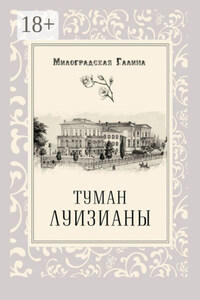âMr. Brookfield, there are several other ladies to choose fromâ¦â
Millicent turned to face Nicholas. âBefore we say anything more, I feel compelled to point out that Iâm merely the one who composed the advertisement. I assure you, itâs quite all right if you find you prefer another of them.â
So Miss Matthews had a sense of fair play and generosity. Nick liked that about her. But somehow he knew her suggestion was something he didnât even want to consider. It was incomprehensible how he could sense that already, but there it was.
âI know you will find this difficult to believe, since weâve only just met, and we really donât know each other at all,â he said. âI can well understand that it appears Iâm making a snap judgment, and perhaps I am, but I would like the opportunity to get to know you better. IâI find you very attractive indeed, Miss Matthews, and thatâs the simple truthâ¦.â
Simpson Creek, Texas, July 1865
âThe problem, as I see it,â Millicent Matthews announced in her forthright way, looking around the edges of the quilt at the members of the Ladies Aid Society, âis that we unmarried ladies are likely to remain so, given the absolute lack of single men whoâve come home to Simpson Creek from the war. The few men who did return were already married, and while Iâm very happy for their wives, of courseââ she added quickly as one of the townâs matrons looked up ââthe rest of us will have to leave or remain single unless Decisive Action is Taken.â
âOh, I donât know, Milly,â said her sister Sarah, staring down at the Wedding Ring pattern as if it held the answer to their dilemma. âPerhaps not all of our men are able to travel yet from wherever they were when the war ended. They might be recovering from wounds, or the effects of confinement in northern prisonsâ¦â
Milly felt a rush of compassion for Sarah, whom she knew was still holding out hope that her beau would yet return, despite the fact he had been reported missing in action late last year. Since then, theyâd heard nothing more. âSarah, itâs July,â she pointed out gently but firmly. âThe war was over in April. Weâve seen the casualty lists. All the other Simpson Creek men have been accounted for, one way or the other. The ones who survived have managed to make it to Texas. If Jesse was still recovering elsewhere, surely he would have sent word by now.â She let the statement hang in the air.
Sarahâs gaze fell to her lap and her lip quivered. âIâ¦I know youâre right, Milly. I just keep hopingâ¦â
Across from them, Mrs. Detwiler pursed her lips.
Milly laid a hand comfortingly on her sisterâs shoulder. She was sure the color of Sarahâs dove-gray dress was a concession to her uncertainty as to whether she was mourning or waiting.
Milly was just about to say âJesse would want you to move onâ when Mrs. Detwiler cleared her throat.
âWe need to accept the lot in life that the Lord sees fit to give us,â the woman said heavily, clutching the mourning brooch on her bodice. âI lost my own dear George ten years ago, God rest his soul, and I have learned to resign myself to my widowhood, evenâdare I say itâtreasure my single state.â Her expression indicated Sarah would do well to be so wise.
âMrs. Detwiler, I admire the way youâve adapted to your loss,â Milly began tactfully, not wanting to offend the widow of the townâs previous preacher. âBut you had many happy years with Mr. Detwiler, and raised several children.â
âSeven, to be exact.â Mrs. Detwiler sniffed, and raised her eyes heavenward.
âSeven,â Milly echoed. âBut Sarah and I and several others hereââ she saw furtive nods around the quilt frame ââare young, and have never been married. Weâd like to become wives and raise children, too. And there are others who were widowed by the war and left with children to raise and land to work or businesses to manage. They need to find good husbands again.â








